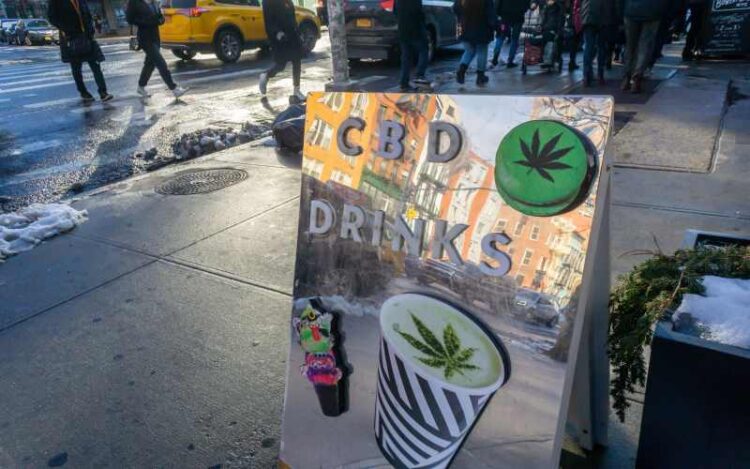British scientists evaluated an array of liquid CBD goods, including tinctures, oils, e-liquids, and beverages, all available for purchase online in the UK.
“A wide range of products contain Cannabidiol (CBD), available for purchase in consumer stores, but there are growing concerns about their quality, particularly significant differences between the claimed and actual CBD content. The understanding of how different types of CBD products deviate from the claimed CBD concentrations is rather limited,” the scientists noted in the analysis introduction, published recently in the Journal of Cannabis Research.
For the analysis, the researchers bought 13 tinctures, 29 oils, 10 e-liquids, and 11 drinks online.
“The researchers used high-performance liquid chromatography (HPLC) to quantify CBD concentrations in tinctures, oils, and e-liquids, while they utilized gas chromatography-mass spectrometry for drinks,” they detailed.
The study concluded that many products were inaccurately labeled.
“Measured concentrations differed by -25.7 ± 17.3, -6.1 ± 7.8, -6.9 ± 4.6, and – 0.03 ± 0.06 mg/mL from the claimed concentrations for tinctures, oils, e-liquids, and drinks, respectively,” the scientists noted in the study’s result section.
“Oils deviated least (-19.0 ± 14.5%) from the claimed concentrations compared to e-liquids (-29.2 ± 10.2%), tinctures (-51.4 ± 41.4%) and drinks (-65.6 ± 36.5%; p < .01), while e-liquids deviated less than tinctures and drinks (p < .05). There was no significant difference in deviation between tinctures and drinks (p = .19). Only 5 out of 63 products (8%) had measured concentrations within 10% of the claimed concentrations,” the scientists added.
The scientists observed, similar to earlier studies, “a few products had measured CBD concentrations within 10% of the claimed concentrations, with the majority falling below the claimed concentrations.”
“All individual product types deviated from the claimed concentrations, with oils deviating least. This could point to inadequate manufacturing standards or possible degradation of CBD in consumer products,” they noted in their conclusion. “This emphasizes the quality concerns surrounding CBD-containing consumer products and possibly underlines the need for better regulation of such products.”
In recent years, CBD products have seen a significant surge worldwide, including the United States. Even though they’re legal, these products are often poorly regulated, leaving consumers unsure about what they are actually purchasing.
Last week, bipartisan lawmakers in Capitol Hill proposed legislation that would subject CBD products to U.S. Food and Drug Administration regulation.
“Hemp and hemp-derived CBD have been legally cultivated in the United States for close to five years, yet the lack of clear regulations puts consumers in jeopardy and restricts producers,” stated Democratic Sen. Ron Wyden, one of the co-sponsors of the bill. “The FDA claims it requires legislative intervention. We’ve proposed the bill to ensure safe and equal access to hemp-derived CBD.”
In a press statement, the group of senators and representatives stated that as it stands, “the Federal Food, Drug, and Cosmetics Act prohibits any new dietary ingredient, food, or beverage from entering the market if it has been examined or approved as a drug.”
“Despite having the authority to make exemptions to this prohibition, the FDA has yet to exempt hemp-derived CBD, despite Congressional action to legalize its production and sale. By excluding hemp-derived CBD from this prohibition, the Hemp Access and Consumer Safety Act will allow the FDA to regulate hemp-derived CBD like all other new dietary ingredients, foods, and beverages,” the press statement explained.
Exploring the Benefits of Cannabis Edibles: A Guide for Beginners









